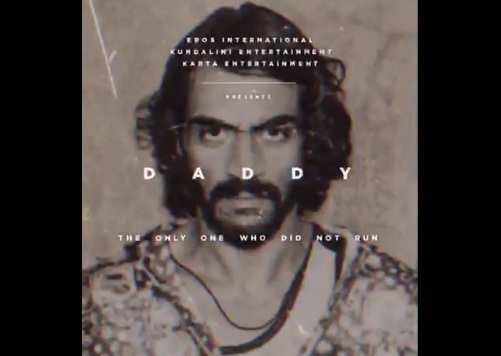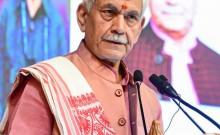
Arjun Rampal managed to turn quite a few heads when he debuted his look from the film Daddy, where he plays gangster-turned-politician Arun Gawli. He managed to raise several more questions about the titular character when he released the teaser on Wednesday. These have definitely piqued people's interest, and they are now looking forward to the film, whose release date has not been announced yet.
Here is an effort by International Business Times, India, to answer at least some of them, and also solve some of the mysteries, like why the trailer refers to him as "the only one who did not run."
Origins
Gawli was one of the six children of Gulab Puransingh Gawli and Laxmibai. His parents used to work in the cotton mills of Mumbai, which have now given way to some of the biggest malls of the metropolis. He was a matriculate — a rare and valued educational qualification for the ward of a cotton mill worker in the 1960s-70s.
He and his family resided in Byculla's Dagdi Chawl, a place that would become synonymous with him and the clout he wielded there. He is married to Asha Gawli, who was a Muslim before marriage, named Zubeida Mujawar. He is also the uncle of Nationalist Congress Party leader Sachin Ahir, who is the son of his sister Ashalata.
What is the BRA gang?
The name derives from the initials of the first names of its three founders — Babu Reshim, Rama Naik and Arun Gawli — who first came together when Gawli was working at Crompton Greaves. It was here that they also met Sadashiv Pawle, aka Sada Pawle or Sada Mama.
Before them, and even during their initial days, the Mumbai underworld scene had not been ruled by Marathis. Haji Mastan — on whose life the Amitabh Bachchan-starrer Deewar and the Ajay Devgn-starrer Once Upon A Time In Mumbaai were based — is often considered the first true mafia don of Mumbai.
Others that came after him — such as individuals like Varadarajan Mudaliar, Karim Lala or Rajan Nair aka Bada Rajan, or gangs like the Pathan gang or much later the Bhaiyya gang — were either Muslim or South Indian or even those who Mumbaikars refer to as "bhaiyya": The Bhojpuri-speakers from Uttar Pradesh and Bihar, who came to Mumbai looking for work and settled there.
'Aamchi Muley'
Gawli and the BRA gang began rising at a time when Dawood Ibrahim had already risen to some considerable power. Since the gang consisted of primarily Marathi-speaking local youngsters, their interests lined up with the then-rising right-wing party, the Shiv Sena (SS), which played on the Marathi sentiments.
Thus it was that then Sena chief Bal Thackeray would go on to call the gang "Aamchi Muley" — our boys — even as the party moved to drive out South Indians, UP-ites and Biharis, whom it considered outsiders. The political stamp would go a long way in cementing the BRA gang's reputation and clout.
'The only one who did not run'
Journalist-turned-author S Hussain Zaidi describes in his book Byculla to Bangkok how a misunderstanding led to the falling out between the SS and Gawli. Gawli subsequently launched his own political party, but cannot contest elections anymore because he is serving a life sentence for his role in the murder of SS municipal councillor Kamlakar Jamsandekar.
The film says he is "'the only one who did not run" because Gawli — whom Zaidi describes in his books as being referred to by his nickname "Daddy" by even policemen — is the only mafia don of his time who was not killed in underworld rivalries to have not left for foreign shores. Compare this to the likes of Dawood Ibrahim, Chhota Rajan, Amar Naik or Abu Salem, who all fled to foreign shores because they feared for their lives.

















